The Winthrop Department of English is poised to provide a streamline of highly skilled graduates to serve as proposal and grant writers as well as technical and professional writers in other industries and has developed a new Micro-Certificate in Technical Writing with emphasis in proposal and grant writing to meet growing market demands for trained technical writers.
The Winthrop University undergraduate Micro-Certificate in Technical Writing is open to students from all majors and is designed to sharpen students’ technical writing skills, develop expertise in professional communication, and credential students in the field of technical writing.
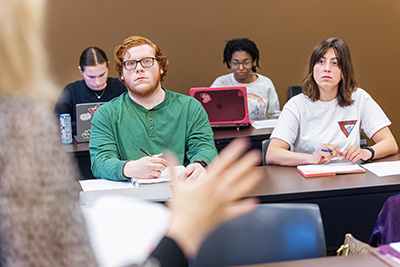 The curriculum for the Micro-Certificate in Technical Writing includes a newly designed
course, WRIT 365: Proposal and Grant Writing, and additional updated and modified courses in technical writing, professional communication,
and editing. These courses are designed to cultivate skills in professional communication,
technical writing, technical editing, grant and proposal writing, writing for new
media and digital platforms, risk assessment, industry-specific research, resume writing,
interviewing, and revising technical documents to meet industry standards. Students
may also elect complete an internship in a relevant field rather than completing a
third course in the program.
The curriculum for the Micro-Certificate in Technical Writing includes a newly designed
course, WRIT 365: Proposal and Grant Writing, and additional updated and modified courses in technical writing, professional communication,
and editing. These courses are designed to cultivate skills in professional communication,
technical writing, technical editing, grant and proposal writing, writing for new
media and digital platforms, risk assessment, industry-specific research, resume writing,
interviewing, and revising technical documents to meet industry standards. Students
may also elect complete an internship in a relevant field rather than completing a
third course in the program.
The Micro-Certificate in Technical Writing is available to all Winthrop students and will be particularly valuable to students majoring in fields such as English, writing, business, healthcare management, mass communication, STEM fields (including chemistry, biology, nutrition, or environmental science), sports management, psychology, and social work. Course curricular options and individual course descriptions are included below.
Required Courses
Required Courses (6 hrs.)
Required Additional Elective in Professional and Technical Writing (3 hrs.)
Select at least one course from among the following options:
Proposal and Grant Writing offers a rhetorical approach to writing academic and business proposals and grant proposals, focusing on creating the best possible persuasive argument for a given audience and context. In addition, the course will cover Requests for Proposals and the proposal writing process from reading and analyzing RFPs, to drafting and production of the final document, to presenting effectively during the proposal evaluation process. Students will leave the course with polished, professionally designed and edited documents, as well as a vocabulary for discussing grants and proposal research and writing during the job search.
This course provides students with an understanding of writing for public and professional audiences using a technical writing style that communicates complex information, solves problems, and completes tasks. Students learn effective collaborative team strategies through the creation of technical documents and presentations that are accessible, comprehensible, and usable. The course focuses on important concepts such as risk communication, ethical standards and obligations, instructional design of materials, project management, and the importance of usability testing within professional contexts.
This course gives students essential training in editing and communication skills by equipping them to evaluate and edit documents. The course focuses on learning principles of document design, applying ethical models of communication, and developing an awareness of the writer/editor relationship. Students learn strategies of editing and revising texts, analyze rhetorical choices, and edit texts for a variety of audiences, both local and global. Students will cultivate their skills by creating and revising professional documents and will conduct a substantive edit of documents across a variety of categories and disciplines.
Students study genre and audience analysis, purpose, format, organization, and styles of workplace and professional communication across oral presentation and electronic and written documents. Students will develop a variety of workplace documents and job application materials, both individually and in collaborative teams.
A discussion of and hands-on workshop in writing in and for digital environments, including the rhetorical, contextual, and ethical issues involved in creating such texts; the criteria for evaluating such texts; and the skills needed to create such texts. Discussions will include content strategy, user experience, and accessibility of writing texts in digital environments.
Digital media have dramatically changed how we read, write, and communicate in the 21st century. As our notions of text and materiality evolve, the study of texts grows ever more interwoven with technology. This class is designed to make students aware of the myriad relationships that exist among texts, with consideration of how printed texts and reading practices are transformed by digital platforms. Students will engage the intersections of digital technology, reading, and writing through discussion and critique of texts and through building digital artifacts across varied interfaces and digital media forms. Students will also consider through their practice both the possibilities and affordances as well as the constraints and ethics that the digital world offers.
This course explores the theories and practices of rhetoric and writing in science, medicine, and health (SMH). Students learn about genres of SMH communication such as regulatory documents, funding requests, podcasts, patient blogs, and published research articles. The course also engages topics such as accessibility, writing in regulated environments, writing for complex professional and public audiences, and engaging with biomedical and scientific research in writing.
This course focuses on describing English grammar using a primarily structuralist approach. Students will develop a thorough understanding of the major grammatical terms and constructions of the English language, identify strengths and weaknesses of traditional grammar, and develop a familiarity with linguistic methodology and research. Students will also gain an understanding of language variety and dialects.
Students who complete the required coursework with a GPA of 2.0 or higher will earn the MicroCertificate and an E-badge credential that can be included on resumes and on LinkedIn profiles.
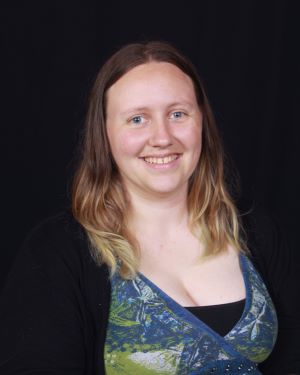
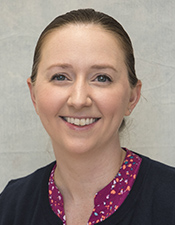
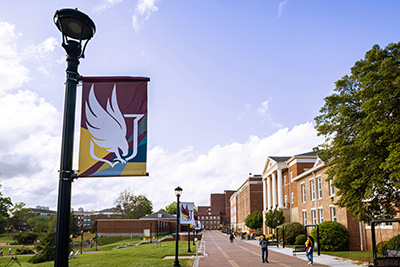 Winthrop University is a four-year, public comprehensive university located in the
upstate region of South Carolina. Founded in 1886, Winthrop University offers its
undergraduate and graduate students a rigorous educational experience that blends
liberal arts, professional programs, global awareness, and civic engagement. Numerous
national accolades reflect the sustained high quality and value of the Winthrop Experience,
including the most recent U.S. News & World Report’s ranking of Winthrop as one of
the top ten public comprehensive universities in the South. Winthrop University is
one of only eight institutions in the world recognized by and formally affiliated with The Foundation for Critical
Thinking in Berkeley, California, for its substantive and rigorous instruction in
critical and analytical thinking.
Winthrop University is a four-year, public comprehensive university located in the
upstate region of South Carolina. Founded in 1886, Winthrop University offers its
undergraduate and graduate students a rigorous educational experience that blends
liberal arts, professional programs, global awareness, and civic engagement. Numerous
national accolades reflect the sustained high quality and value of the Winthrop Experience,
including the most recent U.S. News & World Report’s ranking of Winthrop as one of
the top ten public comprehensive universities in the South. Winthrop University is
one of only eight institutions in the world recognized by and formally affiliated with The Foundation for Critical
Thinking in Berkeley, California, for its substantive and rigorous instruction in
critical and analytical thinking.
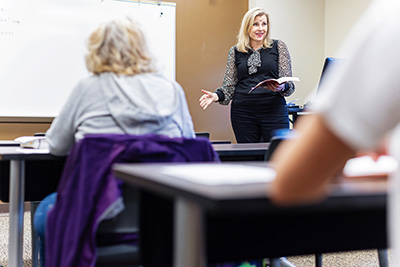 The Winthrop Department of English boasts a vibrant and collegial team of 15 full-time
faculty members, over 100 undergraduate majors and minors, and an M.A. program. The English major is a growing, thriving major; currently the fourth largest major
in Winthrop’s College of Arts and Sciences, the major boasts an eight-point higher
five-year retention rate than the rate for the university as a whole, reflecting the
exemplary mentorship and instruction students receive in the major. The major’s curriculum
was completely revised in 2016 to meet 21st century workplace demands, increase curricular flexibility, and emphasize the attainment
of vital soft skills needed in today’s global workforce. The department offers specialized
instruction, including a concentration, in technical and professional writing; a graduate certificate in professional writing; an undergraduate Micro-Certificate in technical writing; and a thriving and growing
internship program. Technical and professional writing courses are taught by a dedicated team of highly
skilled faculty with specialized expertise and advanced degrees in professional and
technical writing and professional communication.
The Winthrop Department of English boasts a vibrant and collegial team of 15 full-time
faculty members, over 100 undergraduate majors and minors, and an M.A. program. The English major is a growing, thriving major; currently the fourth largest major
in Winthrop’s College of Arts and Sciences, the major boasts an eight-point higher
five-year retention rate than the rate for the university as a whole, reflecting the
exemplary mentorship and instruction students receive in the major. The major’s curriculum
was completely revised in 2016 to meet 21st century workplace demands, increase curricular flexibility, and emphasize the attainment
of vital soft skills needed in today’s global workforce. The department offers specialized
instruction, including a concentration, in technical and professional writing; a graduate certificate in professional writing; an undergraduate Micro-Certificate in technical writing; and a thriving and growing
internship program. Technical and professional writing courses are taught by a dedicated team of highly
skilled faculty with specialized expertise and advanced degrees in professional and
technical writing and professional communication.
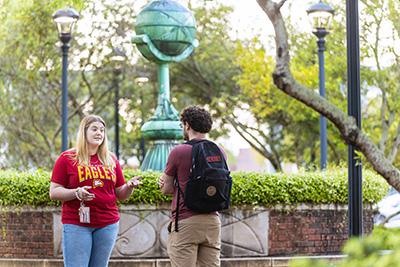 Winthrop is an active member of the Rock Hill community and recognized as a key component
of the region’s economic resurgence. Approximately 20 minutes from Charlotte, North
Carolina, Winthrop has direct access to and is engaged in a broad and expansive regional
business community, including year-round access to student internships with industry
leaders in diverse fields such as marketing, journalism, finance, and grant writing.
Winthrop is an active member of the Rock Hill community and recognized as a key component
of the region’s economic resurgence. Approximately 20 minutes from Charlotte, North
Carolina, Winthrop has direct access to and is engaged in a broad and expansive regional
business community, including year-round access to student internships with industry
leaders in diverse fields such as marketing, journalism, finance, and grant writing.